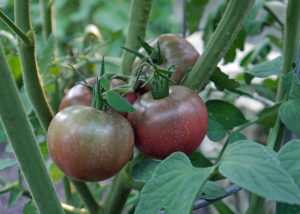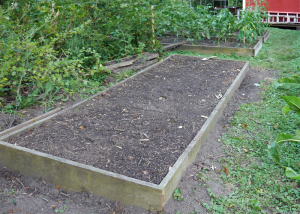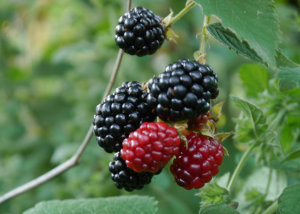Several painful encounters with wasps put enmity between them and their seed and myself at an early age. For most of my years since then, it was open warfare and I usually walked outside with a can of Yard Guard in each holster, ready to dispatch any member of the Vespa Genus that even thought about attaching a nest to any part of my domicile.
My attitude has softened a bit as I became more of a gardener, and I’ve developed, shall we say, a working relationship with these little creatures. Now, don’t get me wrong, I still have a lot of respect for them, as they are armed, and they still sit down hard when threatened. But they are more helpful than harmful, and if you don’t threaten their nest, they are usually quite docile.
The reason I’ve become more tolerant and respectful is because they do an excellent job of ridding the garden of pests. That means I don’t need to use any pesticides. It is interesting to watch them at work; they will inspect the underside of each leaf and if they find a bug, it gets a paralyzing sting, and then is carried back to the nest to be food for the next generation of gardeners.
As if that weren’t enough, I read an article from NPR this week that said that wasps and hornets are responsible for that complexity of flavors that is part of the enjoyment of a good wine. It seems that these critters bite the grapes while on the vine, probably to get a bit of juice. In their gut, they carry a microbe that is essentially brewer’s yeast, which they inject into the grape, which starts the fermentation process on the vine. That and other microbes that the wasps and hornets spread is responsible for the different fermentations and flavors that make for a good wine.
Nature is way more intertwined than we ever expected.




